16 May 2025
Engineering Research shines in the Spotlight at Oxford’s Old Fire Station
The Department recently welcomed around 90 members of the public at a sold-out public engagement event, ‘Spotlight Engineering’, bringing cutting-edge engineering research to life in an accessible and engaging way.
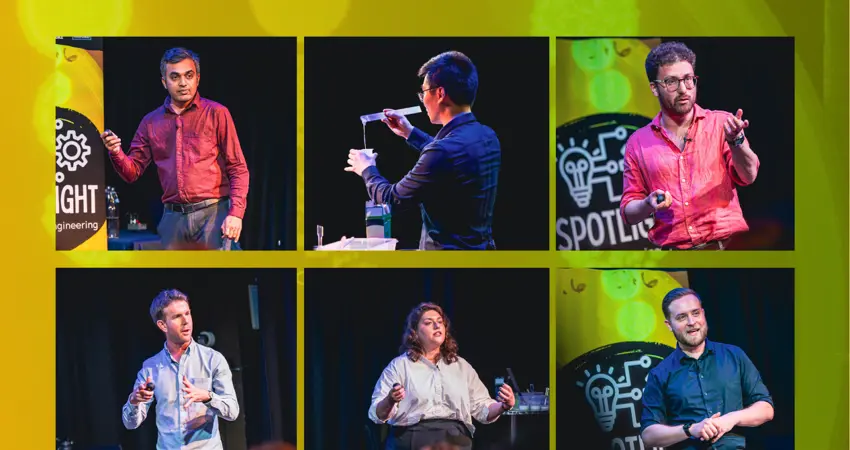
Clockwise from top left: Krupal Patel, Huanming Chen, Alexander Mitchell, Jake Toth, Mujan Seif and Danny Coles
The event, part of the Department’s ongoing commitment to public engagement with research, featured six researchers sharing their work through short, impactful talks — covering topics from tidal energy to non-Newtonian fluids — all aimed at sparking curiosity and conversation.
Dr Danny Coles opened the evening by addressing a topic at the forefront of many minds: rising energy costs. Highlighting that around 9 million UK households now spend 10% of their income on energy, Dr Coles explored the challenges of integrating renewables like wind and solar, which currently provide around 35% of the UK’s electricity. He introduced the audience to tidal stream turbines — submerged on the seabed and powered by the tide — through a compelling video demonstration of one being installed. “The Spotlight training was thought-provoking and engaging,” he reflected. “It made me think about and question my research in a completely different way to the 9-5 in the office, as did the questions from the audience on the night.”
Next, Dr Huanming Chen introduced the audience to an unusual but effective inspiration for body armour: pancake mix. More precisely, he explained how the properties of "oobleck" — a non-Newtonian fluid made from cornstarch and water — could be harnessed for protective clothing. Under impact, the fluid stiffens, offering both flexibility and protection, and has already been shown to slow bullets in trials.
Before the short interval, Dr Jake Toth explored the frontier of neuroscience with his talk, Can we change brain activity without surgery or drugs? Using the striking image that one person’s brain cells would fill 200 Olympic-sized swimming pools if scaled up to the size of marbles, he introduced the audience to different non-invasive brain stimulation methods such as ultrasound, electricity and electromagnetism. His work holds promise for treating mental health disorders without some of the downsides of pharmaceuticals or invasive surgery. “Giving a Spotlight talk was a fantastic opportunity to learn how to present my work in a way that is engaging and relatable,” he said.
In a talk that drew both fascination and humour, Dr Alexander Mitchell showcased different ways in which robots can be taught to walk, adapt and learn autonomously. Responding to a question about the real-world use of robots like those from Boston Dynamics, he explained how sensor-equipped ‘robot dogs’ are already being deployed into hazardous environments — such as nuclear facilities — to generate detailed 3D maps and improve human safety. Reflecting on the whole process, he says, “I loved the event. The training and feedback was really useful. I definitely find public speaking and engagement far less daunting than before”.
Dr Krupal Patel tackled the subject of next-generation batteries, speaking about the potential of solid-state technology. When asked about concerns over lithium availability, he explained how sodium — a cheaper and more abundant alternative — could hold the key to powering the future sustainably.
Turning to biomedical engineering, Dr Mujan Seif demonstrated how advanced materials can be used to transform surgical procedures. She described how ‘umbrella-shaped’ devices are inserted through veins to repair holes in the heart — a compelling example of how her research into the underlying physics of materials and engineering principles can result in life-saving medical technology.
The evening was compered by Dr Veerle Brans and Dr Sara Keller, both former Spotlight speakers themselves, who guided the audience through the programme. They highlighted how questions from members of the public often lead researchers to think differently about their work, and encouraged attendees to explore past Spotlight talks on YouTube.
The impact of the evening was clear: audience feedback showed that by the end of the event, 95% strongly agreed with the statement that engineering has an impact on their life today and will continue to do so in the future — up from 70% at the start.
Spotlight continues to be a powerful platform for researchers to share their work beyond the lab and lecture hall, and for the public to connect with the people and engineering ideas shaping the world of tomorrow.
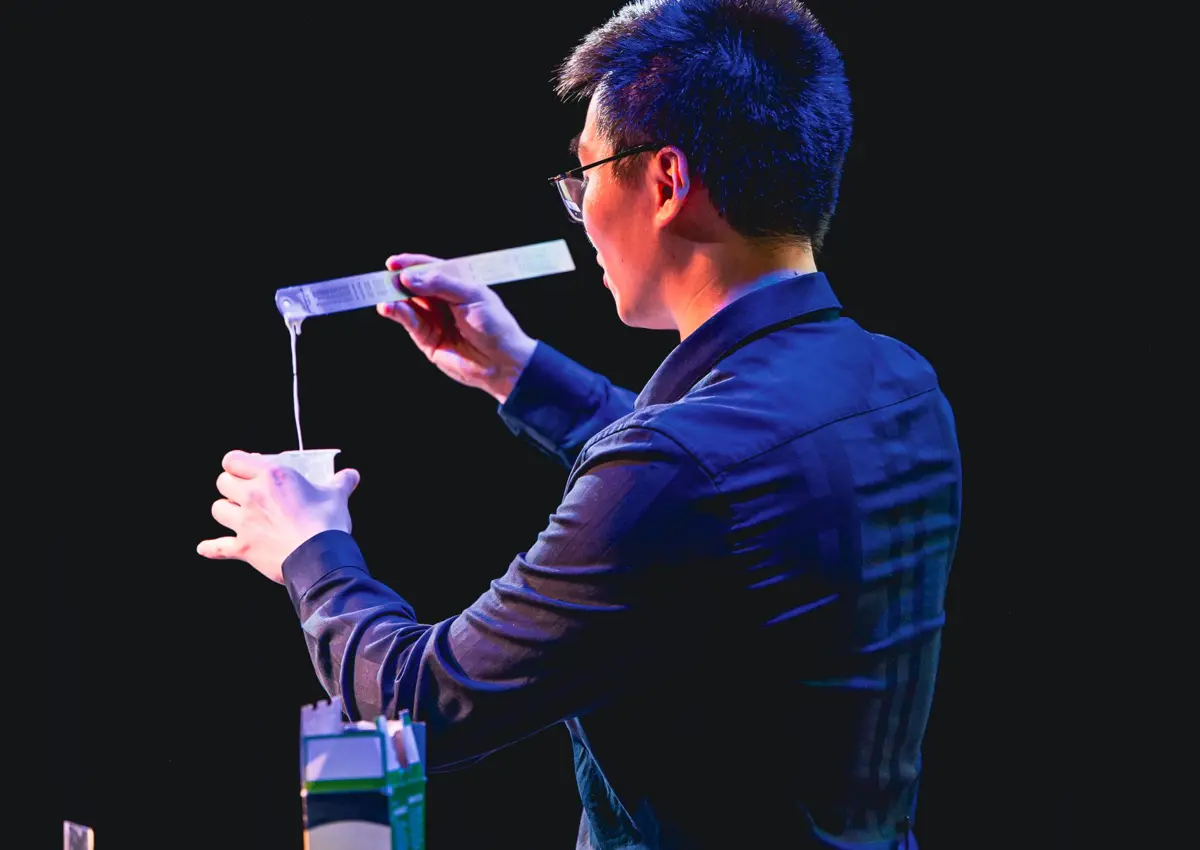
Dr Huanming Chen, Postdoctoral Research Associate, Impact and Materials Engineering
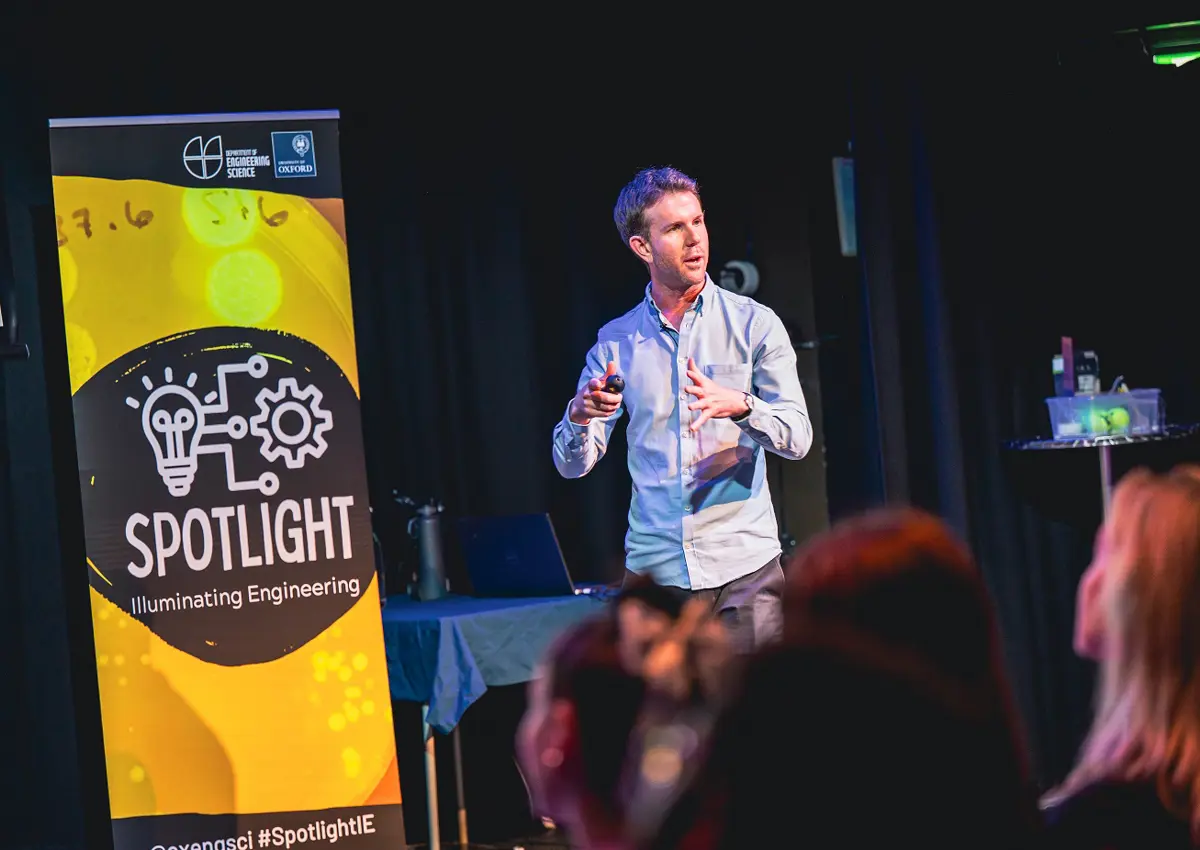
Dr Danny Coles, Senior Research Associate and David Clarke Research Fellow, Environmental Fluid Mechanics Research Group
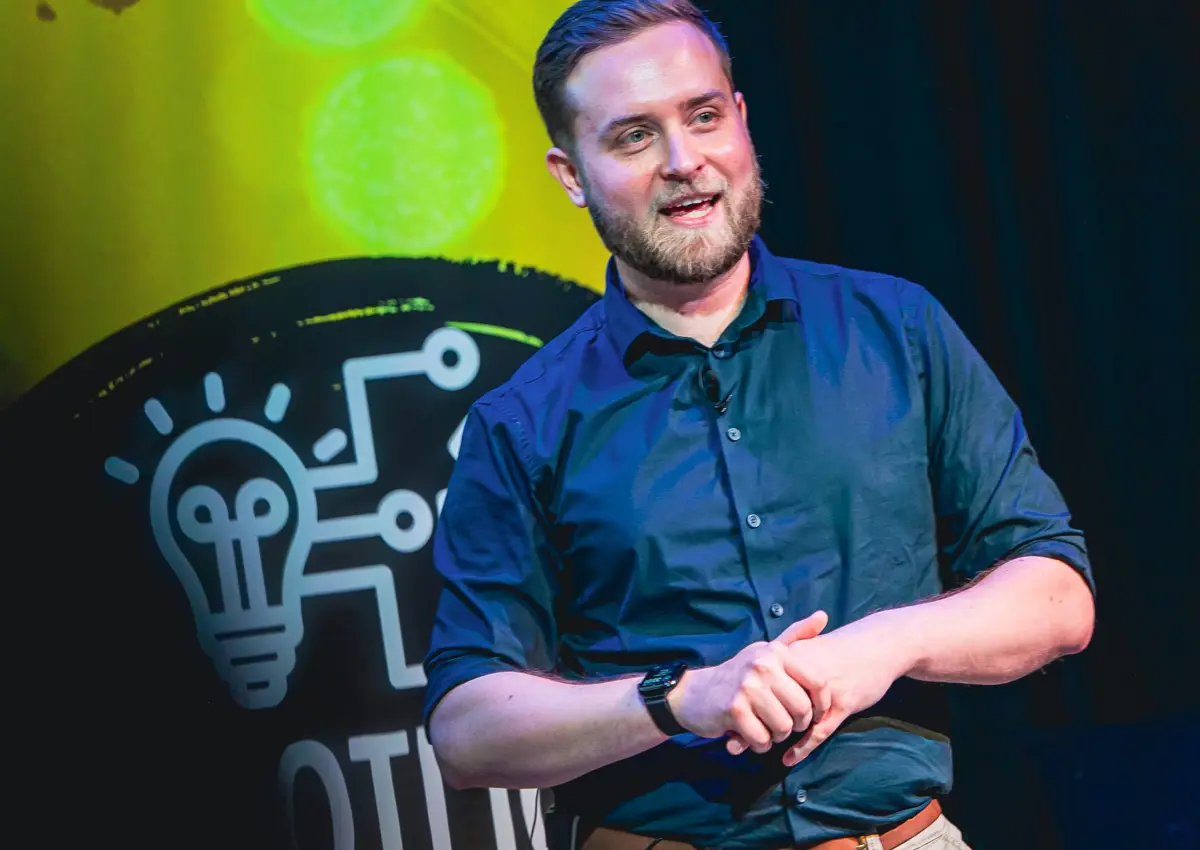
Dr Jake Toth, Postdoctoral Research Fellow, Institute of Biomedical Engineering
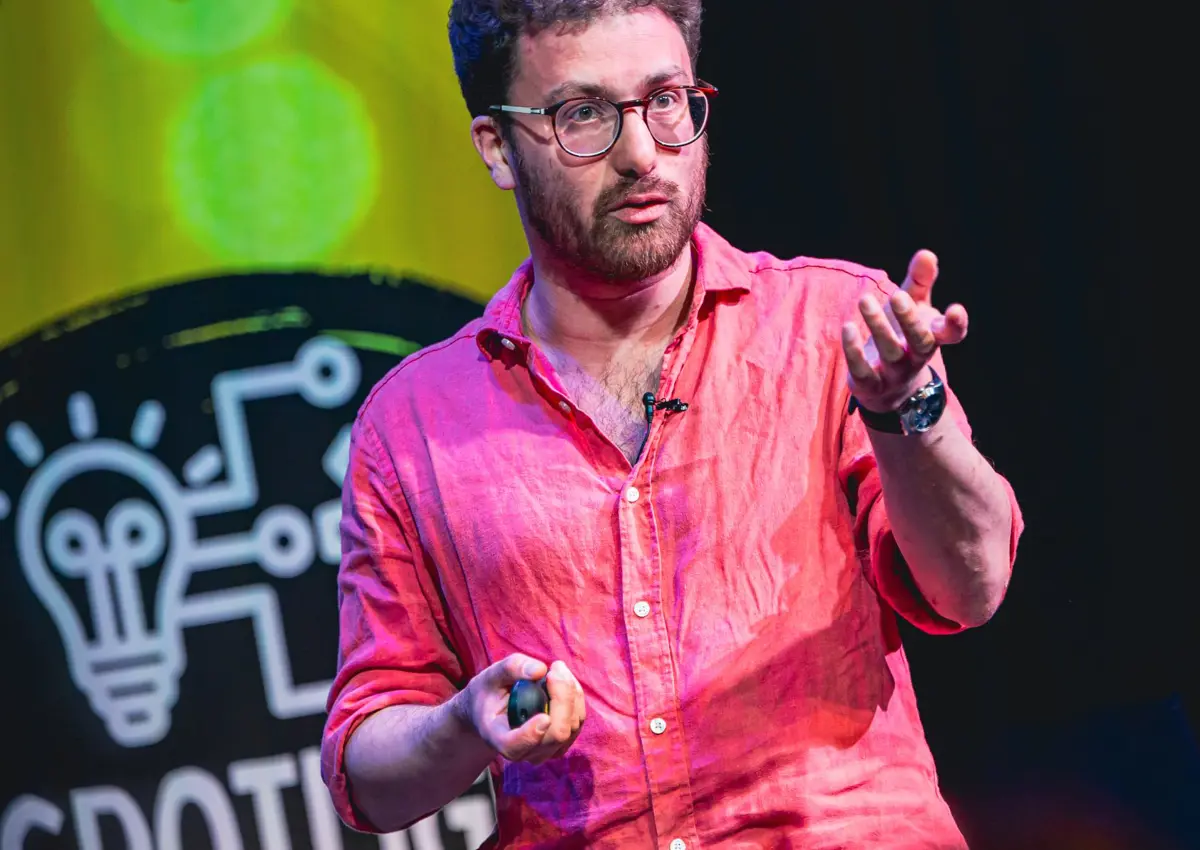
Dr Alexander Mitchell, Postdoctoral Researcher, Oxford Robotics Institute Applied Artificial Intelligence Lab (A2I)

Dr Mujan Seif, Postdoctoral Researcher, Micromechanics and Materials Modelling

Dr Krupal Patel, Postdoctoral researchers, Monroe Research Group

Dr Sara Keller and Dr Veerle Brans, Postdoctoral Researchers, Institute of Biomedical Engineering




